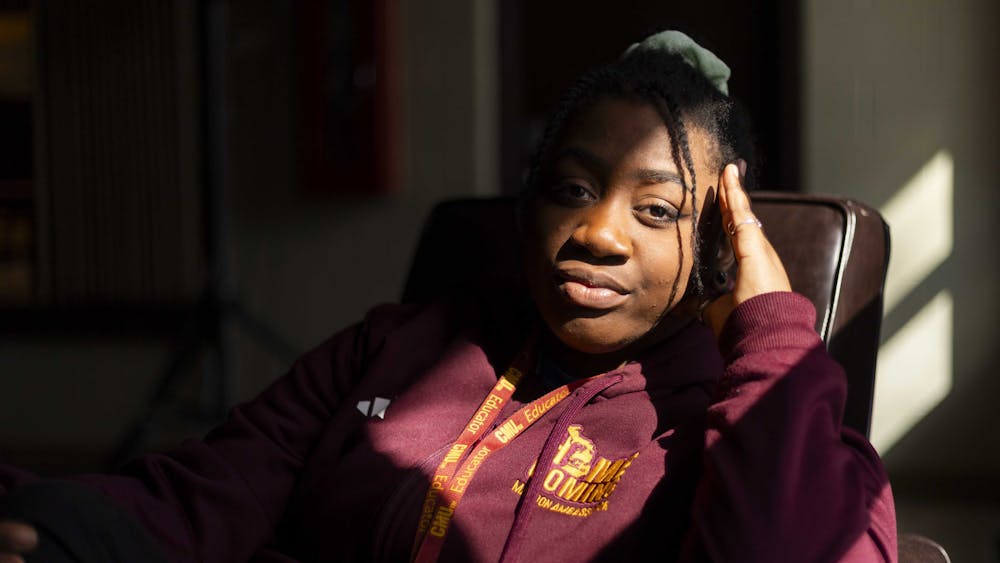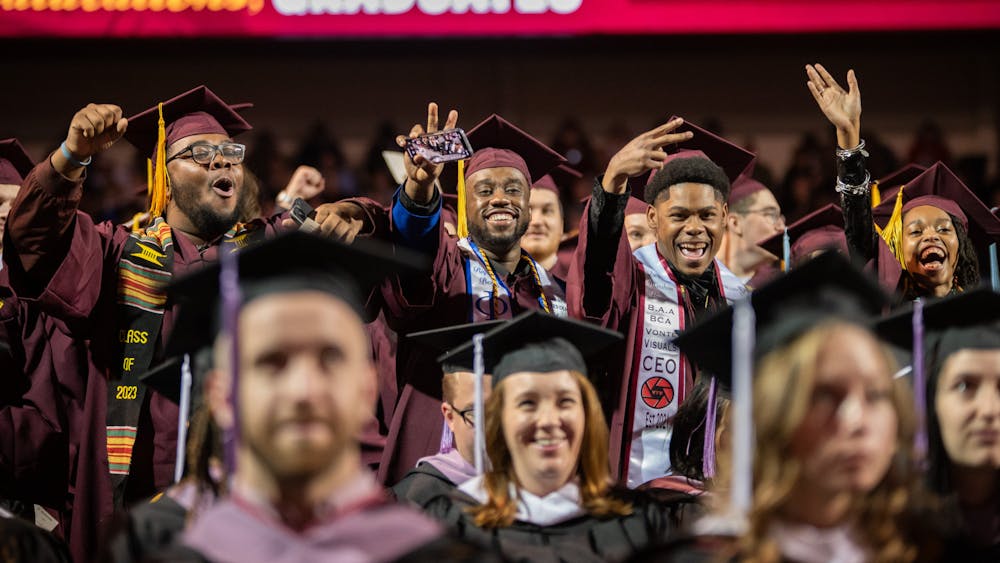Fixed-term faculty may have voting rights if amendment is passed through academic senate
Approximately 360 Central Michigan University professors have no say in the decision making body that governs their work.
In CMU’s Academic Senate, fixed-term faculty members, which make up roughly one-third of CMU’s faculty can't give input about the university’s academic direction.
On Feb. 10 there was a motion to vote one of two proposals forward for further consideration whether to adopt as an amendment to the Senate Constitution. The "Shelton Amendment" was favored by a 75/25 margin.
The amendment moves forward and the Senate Executive Board will be crafting it into language suitable to amend the current constitution. The language will come before the Senate at a later date where a vote to pass it will take place. It must go through the amendment process already defined in the Senate Constitution.
Union of Teaching Faculty Treasurer Mark Shelton said the amendment is a method of adding seats to the Academic Senate in order to provide representation of fixed-term faculty members. As of now the constitution stands and fixed faculty members do not have a vote in the Academic Senate.
“The proposal is basically to add (onto) the number of seats that are equivalent to how many colleges there are,” Shelton said. “The ideal would be that there is one fixed-term senator per college.”
The process to get fix-term faculty representation in the academic senate began in the fall of 2013, with what Shelton said is an inclusion plan.
“Everything was just going to stay exactly the way that it is,” Shelton said. “Fixed-term faculty would be eligible to serve in the Senate. They would be eligible to join in the department voting for whoever is the senator, whether it was a fixed-term person or a tenure-line person.”
Amendments can only pass in the Academic Senate with a two-thirds majority vote in two consecutive votes. The amendment was rejected in 2013 in its second vote by five to three.
Shelton said increased numbers of fixed-term faculty have been a trend nationally, but CMU has kept the ratio of fixed-term to tenure-track stable.
“They could have expanded fixed-term ranks to an even larger number and they haven’t,” Shelton said. “They have made choices to try to keep the balance.”
According to Shelton, fixed-term faculty teach 40 percent of the scholar.
“There’s a lot of courses that are going to come before the senate where it’s fixed-term faculty that have a lot of the experience teaching the courses,” Shelton said. “(Fix-term faculty) therefore have something to say about what those courses are doing and how they need to look.”
Union of Teaching Faculty Vice President and 16 year fix-term faculty member Mark Ranzenberger said he felt fixed-term faculty should be able to make university decisions.
“I’ve been here since 1999. I’m currently on the third university president during that time,” Ranzenberger said. "People who have been here fewer years than I have make long term decisions for the university all the time."
Shelton said the hiring and releasing of fix-term faculty is often market driven.
“Part of that is financial. When they (CMU isn't) getting money from the state in the form of tax dollars, they have to find a way to operate the university with the money they have,” Shelton said.
Union of Teaching Faculty President Amanda Garrison said faculty and tenure-track faculty have different teaching and working experiences at CMU.
Fix-term faculty require an additional class to make them full time university employees.
“For full-time, it’s three (classes) for (tenure-track faculty),” Garrison said. “For us (fixed-term faculty) it’s four to at least be full time.”
Garrison said fixed-term faculty members are usually assigned classes with the most students in them like introductory classes that could have more than 100 students.
Despite the larger classes, Garrison said fix-term faculty rarely have grading assistants to help with the work.
“(Fixed-term faculty) are teaching four classes, five classes or eight classes. They are teaching a lot of students. They don’t have grading help,” Garrison said.





